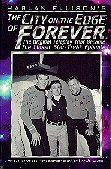Included in this collection of 33 stories are 7 winners and 13 nominees for the prestigious Hugo and Nebula Awards.
Contents
- • Larry Niven. The Jigsaw Man. 1967
- • Philip Jose Farmer. Riders of the Purple Wage. 1967
- • Fritz Leiber. Gonna Roll the Bones. 1967
- • Carol Emshwiller. Sex and/or Mr Morrison. 1967
- • Poul Anderson. Eutopia. 1967
- • Philip K. Dick. Faith of Our Fathers. 1967
- • Robert Silverberg. Flies. 1967
- • Roger Zelazny. Auto-Da-Fe. 1967
- • Frederik Pohl. The Day After the Day the Martians Came. == The Day the Martians Came. 1967
- • Lester del Rey. Evensong. 1967
- • Miriam Allen DeFord. The Malley System. 1967
- • Robert Bloch. A Toy for Juliette. 1967
- • The Prowler in the City at the Edge of the World. 1967
- • Brian W. Aldiss. The Night that All Time Broke Out. 1967
- • Howard Rodman. The Man Who Went to the Moon --- Twice. 1967
- • Joe L. Hensley. Lord Randy, My Son. 1967
- • David R. Bunch. Incident in Moderan. 1967
- • David R. Bunch. The Escaping. 1967
- • James Cross. The Doll-House. 1967
- • Damon Knight. Shall the Dust Praise Thee?. 1967
- • Theodore Sturgeon. If All Men Were Brothers, Would You Let One Marry Your Sister?. 1967
- • Larry Eisenberg. Whatt Happened to Auguste Clarot?. 1967
- • Henry Slesar. Ersatz. 1967
- • Sonya Dorman. Go, Go, Go, Said the Bird. 1967
- • John Sladek. The Happy Breed. 1967
- • Jonathan Brand. Encounter With a Hick. 1967
- • Kris Neville. From the Government Printing Office. 1967
- • R. A. Lafferty. Land of the Great Horses. 1967
- • J. G. Ballard. The Recognition. 1967
- • John Brunner. Judas. 1967
- • Keith Laumer. Test to Desruction. 1967
- • Norman Spinrad. Carcinoma Angels. 1967
- • Samuel R. Delany. Aye, and Gomorrah.... 1967


